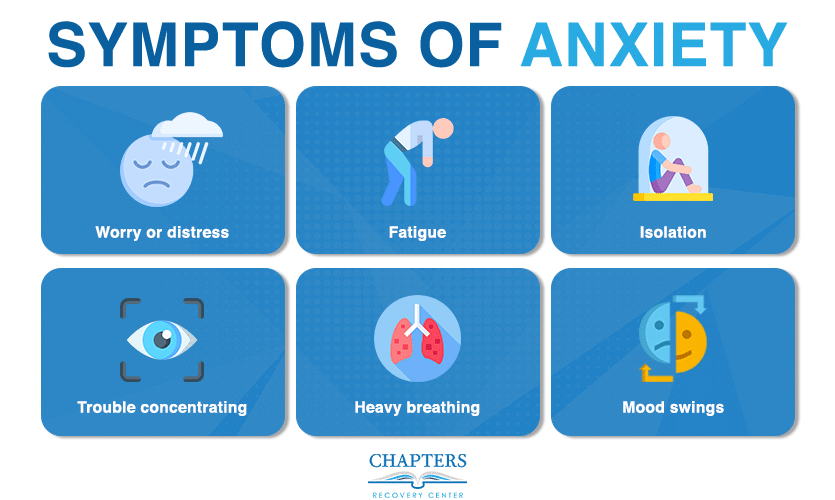Should I Have a Therapist If I Take Depressions Medications?
Selective Serotonin Reuptake Inhibitors (SSRIs) are a class of antidepressants commonly prescribed to treat depression. SSRIs work by increasing the levels of serotonin in the brain, which helps improve mood and emotional stability. Examples of SSRIs include Lexapro, Wellbutrin, and Prozac.
Key takeaway: Combining medication with therapy often leads to better mental health outcomes. Therapy addresses the psychological aspects of depression, providing you with tools to manage emotions and develop healthier coping mechanisms. However, it’s crucial to avoid the pitfalls of self-medication, which can lead to poor physical or mental health. By integrating both approaches, you can achieve a more comprehensive path to healing.
Understanding SSRIs
Selective serotonin reuptake inhibitors (SSRIs) are a class of drugs commonly used in depression treatment. These medications function by influencing the levels of serotonin, a crucial neurotransmitter in the brain.
Serotonin plays an essential role in mood regulation, and its imbalance is often linked to depression. SSRIs work by preventing the reabsorption (reuptake) of serotonin into neurons, making more serotonin available in the brain. This increased availability can help improve mood and alleviate depressive symptoms.
Commonly prescribed SSRIs for depression include:
- Lexapro: Known for its efficacy in treating generalized anxiety disorder along with depression.
- Wellbutrin: Often used not only for depression but also as an aid in smoking cessation.
- Prozac: One of the earliest SSRIs, frequently prescribed for major depressive disorder and obsessive-compulsive disorder.
Understanding how these medications work provides insight into why they are effective for many individuals dealing with depression.
The Importance of Therapy in Mental Health Treatment
Therapy plays a critical role in mental health treatment by addressing the psychological aspects that medication alone cannot fully manage. Cognitive Behavioral Therapy (CBT) and psychotherapy are two common therapeutic approaches that complement medications like Lexapro and Prozac. These therapies focus on understanding and changing negative thought patterns, improving emotional regulation, and developing healthy coping skills.
Benefits of Combining Therapy with Medication
- Enhanced Emotional Regulation: Therapy helps individuals identify emotional triggers and develop strategies to manage them effectively.
- Improved Coping Skills: Through therapy, patients learn practical skills to deal with stress, anxiety, and other mental health challenges.
- Holistic Approach: Combining SSRIs like Lexapro or Prozac with therapy offers a comprehensive treatment plan that addresses both biological and psychological factors of depression.
Real-Life Applications
Many patients taking SSRIs report better outcomes when they simultaneously engage in therapy. For instance:
- CBT helps modify the thought processes that contribute to depressive symptoms while SSRIs work to balance serotonin levels.
- Psychotherapy provides a safe space to explore personal issues, which can be particularly beneficial when adjusting to new medications.
In addition to these traditional therapies, addiction therapy programs can also play a crucial role for individuals struggling with substance use alongside mental health issues. These programs offer various behavioral therapies that can help clients heal from addiction, providing them with essential coping skills and emotional regulation strategies.
Moreover, it’s important to recognize that some individuals may experience what is termed as a high-functioning mental illness. This condition is characterized by appearing comfortable on the outside while still grappling with difficulties due to a mental health disorder. Such complexities further underline the necessity of integrating therapy into one’s treatment plan.
Considering these benefits, integrating therapy into your treatment plan can lead to more sustainable mental health improvements. If you’re interested in exploring therapy options or need assistance with addiction, don’t hesitate to contact Chapters Recovery, a drug & alcohol addiction treatment center located in North Shore, MA.
Combining SSRIs with Therapy: A Powerful Approach to Treatment Success
Research Supporting the Effectiveness of Combined Treatment Approaches
Combining SSRIs with therapy for better results is not just a theoretical concept; it is backed by substantial research. Numerous studies reveal that individuals receiving both medication and therapy experience improved outcomes compared to those who rely on either treatment alone. For example, a study published in the Journal of the American Medical Association found that patients with major depressive disorder had significantly higher remission rates when treated with a combination of cognitive-behavioral therapy (CBT) and SSRIs, as opposed to medication alone.
Another study in the British Journal of Psychiatry highlighted similar findings, showing that combined treatment approaches led to lower relapse rates and longer-lasting benefits. These studies underscore the SSRIs benefits when paired with therapeutic interventions, making it clear that a dual approach can be more effective for long-term mental health.
Addressing Common Concerns about SSRI Treatment
SSRI side effects can be a significant concern for individuals starting this form of treatment. Some potential side effects include:
- Nausea
- Drowsiness
- Insomnia
- Sexual dysfunction
One of the most serious risks associated with SSRIs is an increase in suicidal thoughts, particularly among young people and adolescents. It’s crucial to be aware of these risks and take proactive steps to manage them.
Regular check-ins with healthcare providers are essential during SSRI treatment. These appointments provide an opportunity to:
- Monitor any adverse effects
- Adjust dosages as necessary
- Ensure the medication’s efficacy
Healthcare providers play a critical role in ensuring your safety and well-being while on SSRIs. They can help identify early signs of side effects and implement strategies to mitigate them.
Regular monitoring by mental health specialists is not just about managing physical symptoms but also about supporting emotional well-being. This holistic approach ensures that both the therapeutic and pharmacological aspects of treatment work in harmony for better mental health outcomes.
Managing SSRI Side Effects through Therapy: A Collaborative Approach to Treatment Adjustment
When starting SSRIs, some individuals may experience side effects such as nausea, insomnia, or increased anxiety. Therapists can play a crucial role in supporting patients through this adjustment phase by providing coping strategies for managing these side effects.
The Role of Therapists
- Emotional Support: Therapists offer a safe space to discuss any discomfort or emotional turbulence that might arise during SSRI treatment.
- Coping Strategies: They equip patients with practical tools like mindfulness techniques and cognitive-behavioral strategies to mitigate side effects.
- Psychoeducation: Learning about SSRI side effects and management is vital. Therapists educate patients on what to expect, helping reduce anxiety associated with unexpected symptoms.
Examples of Coping Strategies
- Mindfulness and Relaxation Techniques: Helps manage anxiety and improve sleep quality.
- Behavioral Activation: Encourages engagement in fulfilling activities to counteract feelings of lethargy or apathy.
- Cognitive Restructuring: Assists in challenging negative thoughts that may be exacerbated by initial SSRI side effects.
Integrating therapy with medication not only eases the adjustment period but also fosters a more comprehensive approach to mental health care. This collaboration ensures that both physiological and psychological aspects are addressed, promoting better treatment outcomes.
Seeking Guidance on SSRI Prescriptions and Dosages: Working Closely with Your Healthcare Provider for Optimal Results
Effective management of depression through SSRIs requires a collaborative approach with your healthcare provider. GPs and mental health specialists play a crucial role in determining the right SSRI prescription guidelines tailored to your specific needs.
Key considerations when starting SSRIs:
- Initial Consultation: Engage in a thorough discussion with your GP or psychiatrist about your symptoms, medical history, and any other medications you are currently taking.
- Dosage Adjustments: Your healthcare provider will start you on a low dose to minimize potential side effects, gradually increasing it based on your response and tolerance.
- Regular Monitoring: Consistent follow-ups are essential to monitor the effectiveness of the medication and make necessary dosage adjustments. This helps in achieving the optimal therapeutic effect while minimizing side effects.
- Duration of Treatment: Mental health specialists can provide insights into how long you should continue taking SSRIs. Some individuals may benefit from long-term use, while others might need them only for a shorter period.
- Communication: Open communication with your healthcare provider ensures that any adverse effects are promptly addressed, and adjustments to the treatment plan can be made accordingly.
Collaboration between you and your healthcare provider is key to navigating SSRI treatments effectively. This partnership allows for personalized care, ensuring that you receive the most beneficial outcomes from your medication regimen.
Personalizing Your Treatment Plan: Tailoring SSRIs and Therapy to Your Unique Needs for Better Outcomes
When it comes to mental health, a one-size-fits-all approach rarely works. Individualized treatment plans are essential, especially when dealing with specific conditions such as PMS-related issues or Irritable Bowel Syndrome (IBS). Each person’s mental health journey is unique, requiring a tailored approach that integrates medication and therapy.
Finding Information on SSRIs for Specific Conditions
For conditions like PMS-related depression or IBS, the choice of SSRI and the structure of therapy sessions may differ significantly from standard treatments. For instance:
- PMS-related Depression: Certain SSRIs like Fluoxetine (Prozac) have been found effective in managing mood swings associated with PMS. Therapy can help in identifying triggers and developing coping mechanisms.
- IBS and Anxiety: Medications such as Paroxetine (Paxil) not only help with anxiety but also alleviate some gastrointestinal symptoms. Cognitive-behavioral therapy (CBT) can address stress management techniques to reduce IBS flare-ups.
Integrating Therapy into Personalized Plans
Therapists play a crucial role in creating these individualized plans. They consider your medical history, current symptoms, and lifestyle factors to develop effective strategies. For example:
- Emotional Regulation: Therapists can teach skills like mindfulness and grounding techniques that complement the effects of SSRIs.
- Lifestyle Adjustments: Nutritional advice or exercise routines might be incorporated into the treatment plan to enhance overall well-being.
By combining SSRIs with a personalized therapy plan, you achieve a more holistic approach to mental health care. This dual approach ensures that both biological and psychological aspects are addressed effectively, leading to better outcomes.
Embracing a Holistic Approach to Mental Health Care
Combining SSRIs with therapy can lead to more comprehensive healing experiences. Seeking professional guidance and support throughout your mental health journey is crucial.
Benefits of Therapy:
- Improved emotional regulation
- Enhanced coping skills
- Addressing psychological aspects of depression
A holistic approach to mental health care, integrating both medication and therapy, paves the way for a more effective and personalized treatment plan. Professional support ensures that your unique needs are met, fostering a path towards healing.
Your mental health journey deserves the best care possible. Embrace the combined power of SSRIs and therapy.








